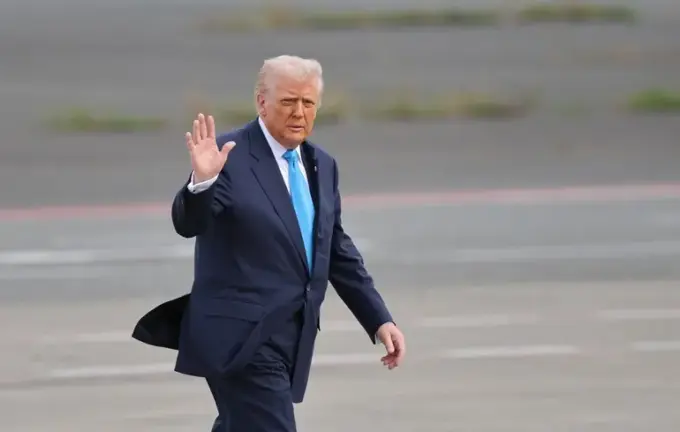Trump’s Shift in Ukraine Policy: From Strong Support to Cautious Diplomacy

Recently, former U.S.
President Donald Trump’s statements regarding the Ukraine war have undergone significant changes.
Whereas previously he advocated for active pressure on Russia and support for Ukraine’s resistance against Russian aggression, now his approach has become more restrained and cautious.
This shift is primarily evident in his refusal to explicitly call for increased military aid to Ukraine or to criticize allies, emphasizing a more cautious stance that leaves room for diplomatic maneuvering.
During recent meetings, Trump has shown less eagerness to intervene decisively, focusing more on domestic issues of the United States.
Supporters of Ukraine worry that such policy shifts could favor Moscow by reducing pressure on Russia.
This trend reflects a broader trend of growing reactiveness rather than strategic planning in U.S.
foreign policy.
Notably, Trump unexpectedly canceled a planned meeting with Russian President Vladimir Putin in Hungary, signaling a change in U.S.
attitudes toward the conflict.
Analysts suggest that this softer rhetoric could impact global security, as diminishing U.S.
support for Ukraine might embolden Russian military activities.
Furthermore, Trump announced the resumption of nuclear tests for the first time since 1992, accusing other nations, particularly Russia, of conducting nuclear experiments.
Meanwhile, Ukrainian cities continue to suffer Russian missile and drone attacks, underscoring the ongoing intensity of the conflict.
Despite Trump’s claims that his administration seeks peace through strength, recent actions and statements suggest a more complex and unpredictable stance, leaving allies uncertain about the future U.S.
policy towards Ukraine.

